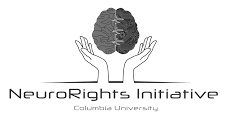Neurorights in Chile:
The
Philosophical
Debate
MARCH 17 - 19, 2021
Broadcast on UAH Digital TV
The workshop “Neurorights in Chile: The Philosophical Debate”, organized by the Chilean Senate’s Challenges of the Future (‘Desafíos del Futuro’) Committee, Prof. Rafael Yuste, from Columbia University, and the Neuroethics Group at Universidad Alberto Hurtado, and supported by Columbia Global Centers | Santiago, was held online on March 17-19, 2021.
The workshop discussed the Chilean Senate’s Constitutional Reform Bill (Bulletin 13.827-19) and the Neuroprotection Bill of Law (Bulletin 13.828-19). These two bills were elaborated during the last year by the Chilean Senate’s Committee, led by Senator Guido Girardi, with the support of Chile's Government, Chile’s Academy of Science, all major universities in Chile, the Morningside Group Neuroethics Task Force and Columbia University’s Neurorights Initiative.
Both bills were approved by the Senate Committee on October 30th and then by the Chilean Senate on December 16th 2020. Following the original proposal advanced by the Morningside Group, the Bills introduce five key neurorights: The Right to Personal Identity, The Right to Free-Will, The Right to Mental Privacy, The Right to Equal Access to Mental Augmentation and The Right to Protection from Algorithmic Bias.
The workshop brought together main neuroethics experts on each of these subjects in order to constructively discuss the next steps in the establishment of neurorights, including issues related to their implementation in Chile and abroad, and the possibility that they serve as a stepping stone for the new Chilean Constitution and for a new International Declaration of Human Rights.









